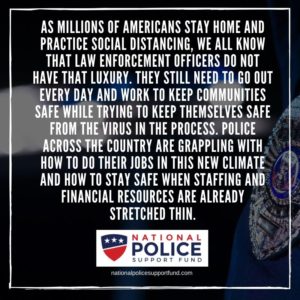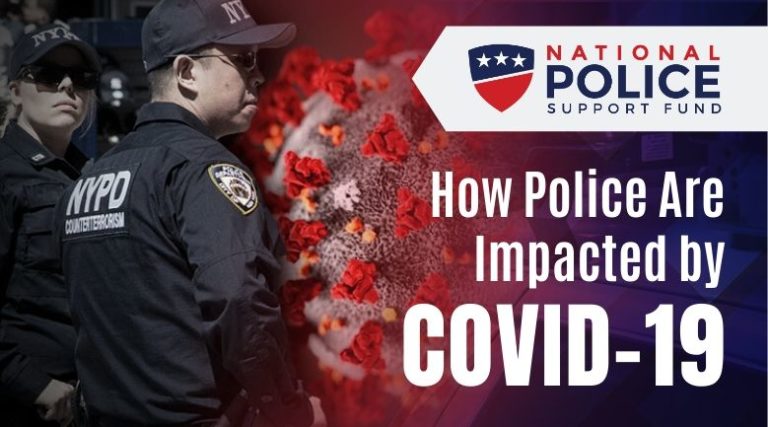As millions of Americans stay home and practice social distancing, we all know that law enforcement officers do not have that luxury. They still need to go out every day and work to keep communities safe while trying to keep themselves safe from the virus in the process.
Police across the country are grappling with how to do their jobs in this new climate and how to stay safe when staffing and financial resources are already stretched thin. Here’s a look at how police are coping, and how you can support their work during this crucial time.
Changing Policing Practices
At a time when staffing resources are already thin, and the CDC recommends limiting in-person contact, police need to make sure that only the most serious calls are handled by officers face-to-face. Whenever possible, take information over the phone or online, says Joel Shults, a retired Colorado police chief and educator.
Some police departments are also delaying the delivery of arrest warrants for nonviolent offenses or find other ways to avoid physical interactions.
The Memphis Police Department is encouraging officers to issue citations for misdemeanors instead of physically arresting someone. Police also have access to hand sanitizer, gloves, and other tools to help them stay safe while on duty.

In Philadelphia, police are delaying arrests for certain nonviolent crimes. This means anyone accused of a nonviolent offense who would normally be arrested and processed at a detective division will now be temporarily detained only until their paperwork is complete and will be arrested at a later date.
Philadelphia police reiterated that this measure does not mean the city is weakening its stance on crime. Rather, the department is taking the necessary steps to limit the spread of the virus in the city and keep its officers safe while they are on duty.
In Austin, Texas, the police department recently announced that it would only respond to the most serious calls that involve violence or serious injuries. Police Chief Brian Manly says officers will temporarily stop handling things like “broken tail lights or expired registrations or inspections.”
“Now we’ll tell officers use your better judgement in those circumstances and determine if a stop is really warranted so we can eliminate non-necessary contacts,” said Manley.
Expect more changes like this across the U.S. as COVID-19 continues to spread and police strike the delicate balance between health, safety, and justice.
Supporting Police During This Time
As we’ve previously reported, police departments across the country already face both funding and staffing shortages. These situations are further challenged when officers fall victim to COVID-19 and are out of commission while they recover and self-isolate.
The last thing that our communities need at this critical time are officers who still come to work when they are sick because they are afraid of losing a paycheck. But this is the reality for many across the country as financial support for police continues to be whittled down by elected officials who do not see the value that a robust police force brings to a community.
Now, more than ever, our officers need support to take care of themselves and their families while they keep the rest of us safe during the coronavirus outbreak.
The National Police Support Fund provides critical support to police across the country. Contribute today to officers through this difficult time.
The National Police Support Fund gives a voice to the average American citizen and allows us to stand up for police officers in the political process. We are able to activate a nationwide grassroots network of supporters to hit the voting booth at the state and local levels to ensure police departments receive the funding and resources they need and the support from elected leaders they deserve. Read more here.









